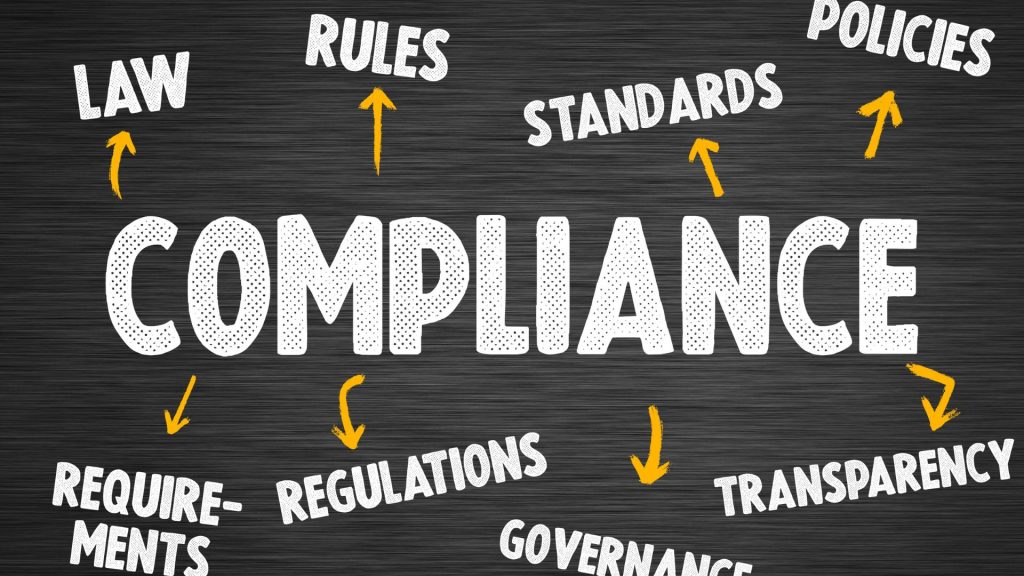Introduction
Compliance, a term often heard in corporate and regulatory contexts, refers to the adherence to laws, regulations, standards, and ethical guidelines. In today’s complex business environment, It plays a crucial role in ensuring transparency, accountability, and integrity across various industries.
The Importance
It serves as the cornerstone of good governance and risk management practices. It helps organizations mitigate legal and reputational risks, safeguard stakeholder interests, and foster a culture of trust and accountability. By adhering to it standards, companies can uphold ethical principles, maintain public trust, and drive sustainable growth.
Understanding Regulatory
Regulatory it encompasses the laws, rules, and regulations that govern specific industries and business activities. From financial services and healthcare to environmental protection and data privacy, regulatory it spans a wide spectrum of areas. Organizations must stay abreast of regulatory changes, implement effective it programs, and proactively address compliance risks to avoid penalties, fines, and legal liabilities.
Ethical and Corporate
In addition to regulatory requirements, ethical and corporate it standards guide organizational behavior and decision-making. Ethical it involves upholding moral principles, fostering a culture of integrity, and prioritizing the interests of stakeholders. Corporate compliance frameworks encompass policies, procedures, and controls designed to prevent fraud, corruption, and misconduct within organizations.
Challenges and Opportunities
Navigating the complexities of it presents challenges and opportunities for organizations. Compliance requirements vary across jurisdictions, industries, and business activities, making it challenging for companies to ensure full compliance. However, effective compliance strategies can enhance operational efficiency, reduce regulatory burdens, and create a competitive advantage in the marketplace.
The Role of Technology in Compliance
Technology plays a pivotal role in modern compliance efforts. Automated it solutions, data analytics tools, and artificial intelligence enable organizations to streamline compliance processes, monitor regulatory changes, and identify potential risks in real time. By leveraging technology, companies can enhance transparency, accuracy, and agility in compliance management.
Also read this" Ccaarrlluuccccii: Exploring Its Intricacies: Unraveling the Enigma "
Conclusion
In conclusion, compliance represents a fundamental aspect of organizational governance and risk management. By prioritizing it, companies can uphold legal and ethical standards, mitigate risks, and build trust with stakeholders. In today’s dynamic regulatory environment, proactive compliance efforts are essential for safeguarding reputation, driving business success, and promoting a culture of integrity and accountability.
(FAQs)
1. What are the key components of an effective compliance program?
An effective it program includes policies and procedures tailored to the organization’s specific risks and regulatory requirements. It involves strong leadership commitment, employee training, risk assessments, monitoring and auditing mechanisms, and a culture of ethics and accountability. By integrating these components, organizations can establish a robust compliance framework that promotes adherence to laws, regulations, and ethical standards.
2. How do organizations ensure compliance with data protection regulations such as GDPR and CCPA?
Organizations ensure it with data protection regulations by implementing data privacy policies, obtaining consent for data processing activities, implementing data security measures, and responding promptly to data breaches or privacy incidents. It with GDPR, CCPA, and other data protection regulations requires ongoing monitoring, documentation, and transparency in data handling practices.
3. What are the consequences of non-compliance with regulatory requirements?
Non-compliance with regulatory requirements can result in financial penalties, legal sanctions, reputational damage, loss of customer trust, and operational disruptions. Regulatory authorities may impose fines, consent decrees, or other enforcement actions for violations of laws and regulations. To mitigate it risks, organizations must maintain vigilance, establish effective controls, and respond promptly to regulatory inquiries or enforcement actions.
4. How can companies adapt to evolving regulatory landscapes and compliance requirements?
Companies can adapt to evolving regulatory landscapes by conducting regular assessments of regulatory changes, engaging with industry associations and regulatory bodies, and investing in it training and technology solutions. Proactive monitoring of regulatory developments, collaboration with legal and it experts, and implementation of agile it processes enable organizations to stay ahead of emerging it challenges.










